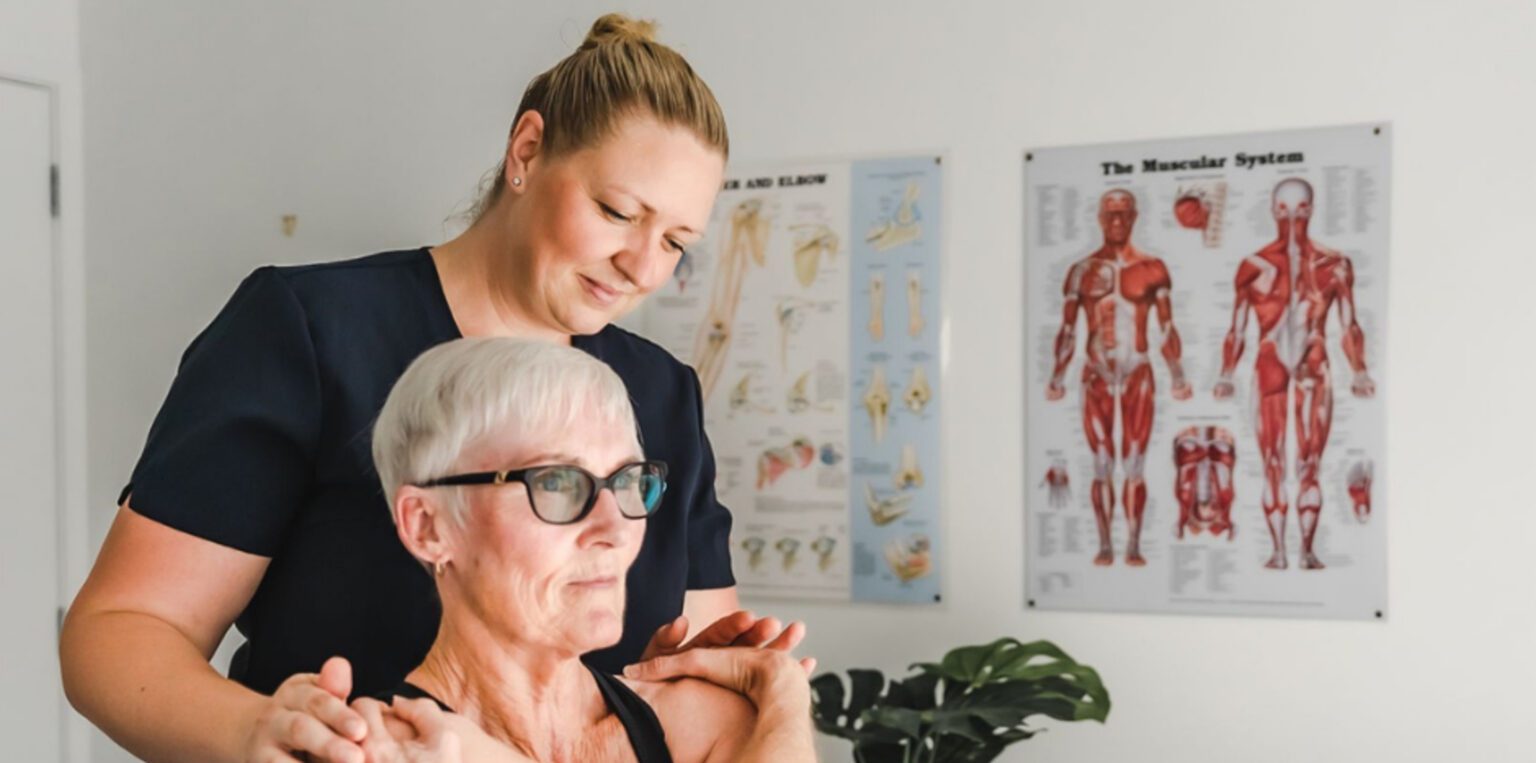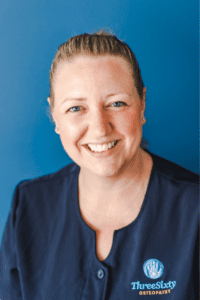What osteopathy business owner Holly Royal has learnt about working with competitors, hiring and retaining staff, and getting bang for your marketing buck.
At a glance
Here’s a snapshot of the advice from our interviewee:
- Define what success is for your business, and make sure you have the time and energy to enjoy it.
- Learn when your quiet and busy times are and have a strategy to scale up or down as needed.
- Be prepared to spend a lot of money in the first few years and don’t immediately expect a profit.
- Learn from people who have gone before you, such as similar businesses and previous tenants.
In Prospa’s ‘I wish someone had told me that’ series, we speak with seasoned small business owners to hear their advice on growing a business and what they wish they were told along the way. Click here to read the rest of the ‘I wish someone had told me that’ series.
After working for several large osteopathy practices and keen to do things her own way, Holly Royal started ThreeSixty Osteopathy in Orewa in 2014. Here are lessons she’s learnt along the way about working with competitors, hiring and retaining staff, and getting bang for your marketing buck.
Respect for competitors
“Back in 2014, I’d worked for multiple practitioners and felt like I had a good understanding of what made a good workplace and clinic. Then I signed up for a commercial lease, which was a huge commitment. I signed on the Friday, painted and fitted the building out over the weekend, and opened to clients on the Monday!
“There were two other osteopathy practices in Orewa, so I wrote to them to say hello and introduce myself. I’ve always believed in concentrating on being good at what you’re doing, rather than being in competition with others. We are good friends now and they often tease me about that letter, but respect and courtesy are at the centre of everything we do at the practice, so it seemed fitting to start off that way.
“I set up my practice with strong branding, internet and social media presence. Social media was an area I could use to my advantage as it wasn’t saturated in my industry at the time.”
Finding a balance
“Over the next few years, I built the practice up to have five full-time osteopaths, a massage therapist and two receptionists, which is quite a large practice.
“In those early days, although the clinic was turning a considerable amount of revenue, there wasn’t a large profit – barely any. I was running a very busy practice and was at the end of my tether with energy and time. With no business training, I kept thinking that if I got one more practitioner, that will turn a profit. Of course, when I did find a new practitioner, another person would leave or the rent would go up.
“I’ve since learnt to ask: What is the best balance of ‘busy-ness’ with the size of the practice, and the least amount of necessary expenses? What is success? It definitely isn’t about having the biggest practice with the most patients and practitioners, and the biggest revenue.”
Adjusting to the times
“Prior to COVID, people were often happy to come for five or six treatments to have their problem sorted 100%. Now people have much tighter budgets and can often only afford three or four treatments. There is more pressure to give better and more services, and people are also coming in worse than they were before; they wait longer because they can’t afford to come until they are forced to.
“As a business owner, you should have a good idea of when your busy and quiet times are, and what trends occur year to year. Learn what to expect. I’ve now downsized my practice so that the number of practitioners reflects the number of patients, rather than there being a lot of empty treatment spaces. If the demand is there, we’ll increase our shifts.
“We also don’t take walk-ins anymore; it’s by appointment only.”
Holly’s top tips
- Be marketing smart. “I wish someone had told me that marketing can be costly. Take advantage of free local business listings and choose where to put your money for the most return. For us, this is social media. Things I’ve tried that didn’t work and cost time and money were dropping leaflets, sponsoring events, going door-to-door and sponsoring teams.
- Be an effective leader. “Have a three-month trial period for staff if you can. Be friendly but not too friendly. Have your ‘boss hat’ and ‘personal hat’.”
- Motivate staff. “Reward people financially for their improvements via performance reviews as soon as they earn it. Keep your staff as happy as possible because, again, it is very costly in terms of time and money to find and train a good replacement.”
- Pay attention to your premises. “Negotiate a good price for the lease and ask for one to three months free to get up and running. Speak to the other local or previous tenants for their experience with the landlord. Parking and good signage are essential.”
- Keep records. “Automate processes as much as humanly possible. Keep a booklet for all procedures and create documents and videos as you go. It will take a long time to get them all done, but when they are done and in one easy place, life will be so much easier.”
- Consider your priorities. “Ask what you want from your business. Make sure you can commit the time needed to make it work, be prepared to spend a lot of money in the first few years, and don’t immediately expect a profit.”
A Prospa Small Business Loan could help your business embrace the possibilities of change and growth. Contact a Prospa specialist to discuss your options.





